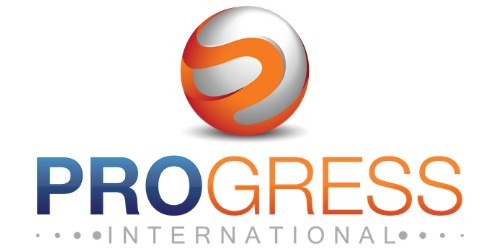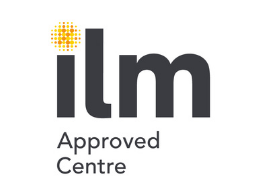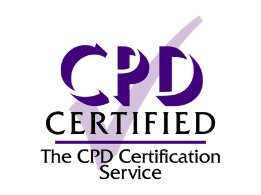The future of personal development is unprecedented, from the ascent of AI and automation to the emergence of new work models like hybrid and remote teams. Amidst this whirlwind, one unchanging truth stands out: The critical need for effective leadership. The time to adapt is now.
For businesses to survive and thrive, organisations must empower leaders to focus on developing resilient, adaptable individuals who can inspire their teams through uncertainty. The responsibility lies with the leaders to steer their teams towards success.
Personal development has become more crucial than ever in leadership. It involves honing technical skills and cultivating emotional intelligence, adaptability, and a strong sense of purpose.
In this article, we’ll explore how personal development is evolving to meet the demands of the 2025 workplace and what leaders need to focus on to stay ahead.
Personal Development in the Age of Transformation
Today, leadership is no longer just about managing people but inspiring teams to adapt and grow amid constant change. For leaders, personal development is more than self-awareness; it’s about continuously evolving in response to external technological, cultural, and societal shifts.

The Rise of Digital Leadership
In 2025, leadership is becoming more digital-first. Remote work, virtual teams, and digital communication tools have reshaped how leaders connect with their teams. McKinsey has conducted research indicating that approximately 90% of organisations have adopted hybrid work models since the pandemic, allowing employees to work from off-site for at least some time. As this trend continues, leaders must develop digital literacy and understand how to maintain engagement and productivity in virtual settings.
Leaders who invest in developing digital communication skills, whether through mastering online meeting platforms, improving virtual team management techniques, or using digital tools for performance tracking. Will not only have a distinct advantage and be better equipped to lead in 2025.
Digital leadership goes beyond understanding technology; it’s about using these tools to create an inclusive, collaborative, and efficient environment for remote teams.
Building Emotional Intelligence for Greater Leadership Impact
Emotional intelligence has always been a key leadership trait, but in 2025, it will be a non-negotiable skill. As work environments become more diverse and dispersed, leaders will need to understand and manage their own emotions and recognise and respond to the feelings of others. This requires a high level of self-awareness, empathy, and social skills.
Leaders who invest in developing emotional intelligence will be better equipped to navigate conflict, foster collaboration, and ensure their teams feel heard and valued. Moreover, emotional intelligence is key to creating an emotionally resilient workforce that can thrive during times of stress and uncertainty—something that has become increasingly important in today’s unpredictable business environment.

360-Degree Feedback: A Critical Tool for Leadership Development
One of the most effective ways to accelerate personal development and enhance leadership skills in today’s rapidly evolving workforce is through 360-degree feedback. This multi-source feedback approach provides leaders with insights from all levels of the organisation, offering a more comprehensive view of their strengths and areas for improvement.
The Power of Comprehensive Feedback
360-degree feedback has become essential for leaders looking to enhance their self-awareness. Traditional top-down feedback often focuses on performance from the manager’s perspective, but 360-degree feedback involves input from peers, direct reports, and external stakeholders. This diversity of perspectives helps leaders gain a more rounded view of their impact, leadership style, and the areas they need to focus on for growth.
For example, leaders may not always realise how their communication style affects team morale or how others perceive their decision-making process. Through 360-degree feedback, they receive constructive insights from various colleagues, helping them make more informed and balanced leadership decisions.
In personal development, 360-degree feedback is an invaluable tool that provides leaders with concrete data on where they can improve. This practical feedback can help leaders prioritise areas such as emotional intelligence, decision-making, or team management, which are essential for success in 2025’s dynamic workplace.

The Role of Continuous Learning and Adaptability in Leadership
The future of leadership is firmly rooted in adaptability. In an era of rapid technological advancement, leaders must embrace, actively pursue lifelong learning and continuously develop new skills. The message is clear: staying updated is not a choice but a necessity.
Fostering a Growth Mindset
A growth mindset, the belief that abilities and intelligence can be developed over time, is crucial for modern leadership. Leaders who embrace this mindset are more likely to seek new growth opportunities, learn from failures, and encourage their teams to do the same.
As businesses face new challenges—whether through digital disruption, economic shifts, or changing consumer behaviours—leaders with a growth mindset are better positioned to innovate, pivot when necessary, and inspire their teams to adapt. This mindset is crucial for individual leaders and should be cultivated across the entire organisation to ensure that teams are resilient and capable of embracing change.
Developing Cross-Functional Leadership Skills
As organisations become more interconnected, leadership is no longer confined to one specific function or department. In 2025, effective leaders need to be able to manage cross-functional teams, work across silos, and drive collaboration across departments.
Leaders who invest in developing cross-functional skills—such as understanding different departments, communicating across teams, and driving alignment on organisational goals—will be much more effective in achieving company-wide success. Encouraging leaders to step out of their comfort zones and gain experience in other business areas will help them develop a more holistic view of leadership, which is critical in today’s interconnected business world.
Future of Personal Development: Conclusion
As we move into 2025, the key to leadership success lies in personal development responsive to the ever-changing business landscape. By focusing on emotional intelligence, embracing 360-degree feedback, and fostering a growth mindset, leaders will be better equipped to navigate the challenges and opportunities ahead.
The future of personal development in leadership is about continuous growth, self-awareness, and adaptability. Leaders who invest in personal development will enhance their performance and set the tone for their teams, creating a culture of growth, resilience, and success.
Ready to enhance your leadership skills? Let’s discuss how we can help you use the latest leadership development tools and strategies to build a more effective, adaptable, and resilient leadership team. Reach out to our team to learn and discuss more.







